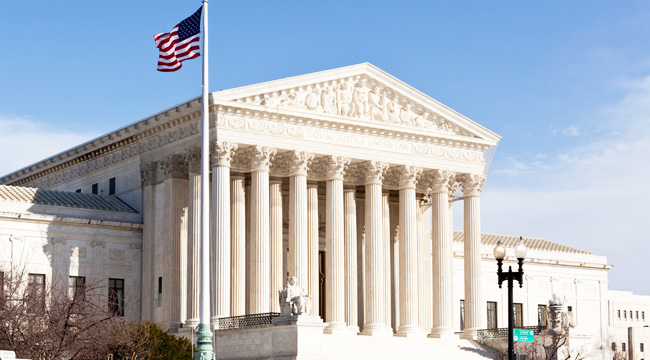
Although North Carolina Republicans won a late night budget battle over the weekend, Democratics achieved a higher legislative victory on Monday when the U.S. Supreme Court decided not to review the state’s highly controversial voter ID law. Last July, the Fourth Circuit Court of Appeals struck down the problematic piece of legislation, ruling what the state’s GOP claimed was an attempt to curb voter fraud was actually a form of voter discrimination in violation of the Voting Rights Act of 1965.
In their unanimous decision, the Fourth Circuit’s panel of three Democratic judges struck down key parts of the law, which they argued was designed to “target African-Americans with almost surgical precision” in certain precincts. Then-Governor Pat McCrory — who became nationally infamous for his state’s anti-LGBT “bathroom bill” (and subsequent attempts to thwart his Democratic successor) — vowed to repeal the decision. And since then-AG (and future governor) Roy Cooper wouldn’t contend the Fourth Circuit’s decision, McCrory went so far as to claim he would take his case all the way to the U.S. Supreme Court.
Per custom, the Supreme Court did not offer an official reason for their decision not to hear the case. However, the New York Times reports Chief Justice John G. Roberts Jr. issued his own statement, in which he briefly noted “there was a dispute about who represented the state in the case,” adding “that nothing should be read into the court’s decision to decline to hear it.”
(Via New York Times)
